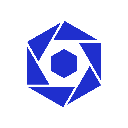历史最高价
历史最低价
成交额(24h)
1.35M
换手率
3.37%
市值
39.992M
FDV
41.8M
流通量
2.87B
总发行量
3B
最大发行量
探索者
汇率计算器
{{conversion_one_currency}}
{{conversion_two_currency}}
| 交易所 | 交易对 | 价格 | 成交额 (24h) | 成交额 % | 信心 | Liquidity Score | 赚取 |
|---|---|---|---|---|---|---|---|
| {{val.marketPair}} | {{val.price}} | {{val.volume24h}} | {{val.volumePercent}} | 低 适中 高 | {{val.effectiveLiquidity}} | 买入 / 卖出 | |
社区情绪

26%
74%


看涨

看跌
| 交易所 | Pair | 价格 | 成交额 (24h) | 成交额 % | 信心 | Liquidity Score | 赚取 |
|---|---|---|---|---|---|---|---|
| {{val.marketPair}} | {{val.price}} | {{val.volume24h}} | {{val.volumePercent}} | 低 适中 高 | {{val.effectiveLiquidity}} | 买入 / 卖出 | |
关于 Constellation
您在哪里可以购买星座(DAG)?
截至2021年10月,[Constellation](https://coinmarketcap.com/currencies/currencies/constellation/)(dag)可在多个加密交易所购买,出售和交易,其中包括[kucoin](https://coinmarketcap.com/exchanges/kucoin/kucoin/), [htbtc](https://coinmarketcap.com/exchanges/hitbtc/),[lcx Exchange](https://coinmarketcapcap.com/exchanges/exchanges/lcx-exchanges/lcx-exchange/)和[hotbit](hotbit] 想要跟踪DAG价格的现场直播吗?下载[COINMarketCap App](https://coinmarketcap.com/mobile/)。 使用[CMC加密词汇表](https://coinmarketcap.com/alexandria/glossary)了解有关加密术语和定义的更多信息。 阅读[COINMarketCap博客](https://coinmarketcap.com/alexandria/categories/blog),以获取最新的加密市场更新,公告,见解和新闻。
星座网络如何确保?
[https://coinmarketcap.com/currencies/constellation/)(dag)和美国空军在2019年夏季签署了一项协议,以使后者的大数据管理自动化。星座在2021年夏天建立在此基础上,现在将为美国国防部及其商业合作伙伴之间的通信提供端到端的安全性。 在技术方面,星座与Kinnami软件合作,以利用其超图转移协议,以创建基于区块链加密和分布式数据管理的强大数据安全产品。 Constellation的HyperGraph可以通过使用其DAG体系结构和知名观察(Pro)共识的证据向网络添加节点来扩展。星座上的所有内容都是由使用JVM生态系统中现有代码库提供微服务的智能合约来自动处理的。
循环中有多少个星座(DAG)硬币?
[星座](https://coinmarketcap.com/currencies/constellation/)(dag)是星座网络的本地令牌。截至2021年10月,总供应量限制为37.1亿代币,流通量为12.7亿。 DAG令牌[ICO](https://coinmarketcap.com/alexandria/glossary/initial-coin-offering-ico)于2018年6月15日结束。 DAG是作为[ERC-20](https://coinmarketcap.com/alexandria/glossary/erc-20)代币创建的,该代币提供了政府渠道与节点之间的无缝通信,并连接多个网络组件。 此外,Constellation的开发人员推出了一个名为Molly的本地加密钱包,旨在增强用户体验。
是什么使星座与众不同?
(https://coinmarketcap.com/currencies/constellation/)(DAG)的使命是处理具有最大可扩展性,易于集成,低交易费用和高度安全性的大数据。星座旨在以安全且具有成本效益的方式有效地处理大型数据集。 星座协议旨在解决区块链空间中可扩展性的持续挑战。该项目的关键区别在于能够按比例扩展用户数量和当前需求。如果用户加入星座,则网络带宽将直接增加。 Constellation使用一种共识模型,称为最佳证明(POM),该模型基于奖励和选择具有良好声誉的节点的原则。 在星座网络上,智能合约在Java虚拟机(JVM)上运行。这些合同的功能与[以太坊](https://coinmarketcap.com/currencies/ethereum/)(ETH)的智能合约相似,但它们的逻辑更为复杂。 2018年6月,Constellation的创建者推出了Orion,这使社区能够赢得DAG令牌参加各种星座活动。社区的目标是将网络的信息和内容收集到一个中央枢纽中。 星座网络的体系结构由几个组成部分组成,包括: *星星。网络和用户之间直接交互的基本元素,该元素与移动设备兼容。所有交易均通过此组件进行。 *星团。需要参加共识。每个恒星群都形成本地[hash](https://coinmarketcap.com/alexandria/glossary/hash)[blocks](https://coinmarketcap.com/alexandria/glossary/block),它们像普通的交易一样处理,并像普通的交易和黑孔一样处理。 *星系。这些是同构的,表现为[验证者](https://coinmarketcap.com/alexandria/glossary/validator)。星系将资源献给星星并保持节点的声誉。星系元数据收集在黑洞中,网络的区块链历史记录存储在星系中。 *黑洞。这些是哈希块。 总结其关键特征:星座专注于大数据验证,大数据公证和可扩展的互操作性。
谁是星座的创始人?
Constellation Labs(CST)由四个人共同创立:本杰明·乔根森(Benjamin Jorgensen),本杰明·迪格尔斯(Benjamin Diggles),马蒂亚斯·戈德曼(Mathias Goldmann)和怀亚特·梅尔德曼·弗洛奇(Wyatt Meldman-Floch)。 本杰明·乔根森(Benjamin J. Jorgensen)是星座实验室的首席执行官。以前,他是Klick Push的创始首席执行官,也是MZ Dining Group(Ittoryu Gozu)的共同所有人之一,也是A5 Meats的所有者。 本杰明·迪格尔斯(Benjamin Diggles)是星座上的首席收入官(CRO)。他负责与政府和企业联络,还负责财团计划和实施Constellation的全球伙伴关系战略。在担任Constellation Labs之前,Diggles曾在Oracle,Universal Pictures和Disney工作。 Mathias Goldmann是Constellation的首席运营官(COO)。戈德曼(Goldmann)曾在欧洲中央银行和普华永道(Pricewaterhousecoopers)工作,并于2017年10月成为Constellation Labs作为财务副总裁的一部分。现在,作为首席运营官,他负责监督业务运营的开发和实施。他还制定了制定星座企业文化和愿景的政策。 Wyatt Meldman-Floch是Constellation的首席技术官(CTO),他从头开始开发了星座协议。 Meldman-Floch是NASA AMES研究中心的实习生和研究员,还曾在包括Zignal Labs和Rally Health在内的公司工作。
什么是星座(DAG)?
[Constellation](https://coinmarketcap.com/currencies/constellation/) (DAG) is a protocol that uses a [directed acyclic graph](https://coinmarketcap.com/alexandria/glossary/directed-acyclic-graph-dag) architecture to achieve a [共识](https://coinmarketcap.com/alexandria/glossary/consensus),从理论上讲,它具有无限的可扩展性。使用dag [protoct](https://coinmarketcap.com/alexandria/glossary/protocol)和自定义[State Channels](https://coinmarketcap.com/alexandcap.com/alexandria/glossary/state-channel)合同](https://coinmarketcap.com/alexandria/glossary/smart-contract)通过允许将数据源集成到[[分布式Ledger Technology](https://coinmarketcap.com/alexandcom/alexandria/glossary/glossary/glossary/glossary/distribate---------------technolology-dlt)(dlt)(dlt)(dlt)(dlt)。 该公司于2017年成立,DAG路线图的历史可以追溯到2018年4月。开发该项目时,创始团队决定重新考虑许多[问题](https://coinmarketcap.com/alexandcap.com/alexandria/glossria/glossary/blockchain-trilemma),以获取现有的现有解决方案。 [Blockchains](https://coinmarketcap.com/alexandria/glossary/blockchain),例如可扩展性和集中化。星座旨在实现大数据的安全处理,提供通过易于使用的[API](https://coinmarketcap.com/alexandria/glossary/api)连接到外部数据集的能力。通过无服务器架构建立共识的原则的变化,它的技术促进了其技术。
Constellation 资讯
-

探索 Pi Network、Chainlink 和 BlockDAG 在不断发展的加密货币领域的对比命运。透明度、实用性和切实进展占据中心地位。
2025-11-04 07:55:55
-

探索 2025 年最热门的加密货币预售,重点关注 BlockchainFX、BlockDAG 和 BullZilla,以及是什么让它们在早期投资者中脱颖而出。
2025-11-03 21:50:43
-

探索 BlockDAG 如何引领可扩展增长和最新加密趋势,与 Polygon、Litecoin 和 Stellar 等项目一起为 2025 年的变革奠定基础。
2025-10-23 06:00:21
-

探索 BlockDAG、Polygon、Algorand 等如何通过创新技术和战略合作伙伴关系重新定义加密货币回报并塑造 2025 年增长周期。
2025-10-23 06:00:00
-

深入了解 BlockDAG、Polygon 和 Litecoin 的动态,了解它们准备塑造 2025 年的加密货币格局。发现这些项目所蕴含的趋势、见解和潜力。
2025-10-23 05:00:19
-

BlockDAG 以其 4.3 亿美元以上的预售和币安 AMA 掀起了波澜。它是加密领域的下一个重大事件,还是只是昙花一现?让我们深入了解一下。
2025-10-23 04:47:37
-

Tron 和门罗币展现了实力,但 BlockDAG 的币安 AMA 和 4.31 亿美元的巨额预售点燃了市场狂热。 BlockDAG 是现在最值得购买的加密货币吗?
2025-10-23 04:00:50
-

BlockDAG 凭借其创新技术、强大的社区和战略合作伙伴关系掀起了波澜,使其有望成为顶级山寨币。但它能辜负炒作吗?
2025-10-23 01:00:47
-

在预售成功和挖矿社区的推动下,BlockDAG 的目标是跻身前 30 名。币安上的 AMA 在创世日之前预告了路线图更新。
2025-10-23 00:00:49
相似代币






























































































推特
GitHub
关闭